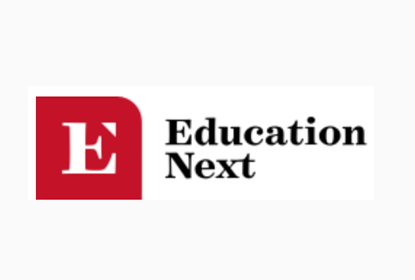
To access the original article published: https://www.educationnext.org/dramatic-learning-gains-for-mcdonalds-of-african-private-schools-study-by-nobel-economist-finds/
The cover article in the Spring 2022 issue of Education Next reported on Bridge International Academies, which enroll more than 800,000 students in five countries.
In the article, Beyond Moneyball: Data-Driven Education Boosted by Observation and Judgment, Mike Goldstein writes, “When taking on a new education venture that you intend to evaluate, reach out to top-notch economists who can measure your results through a randomized controlled trial.”
“The external evidence on Bridge suggests that the learning gains are real and large. I believe future external evidence will bolster these claims, perhaps in a jaw-dropping way,” Goldstein, and adviser to Bridge International and the founder of Match Education in Boston, wrote.
The “future external evidence” is now in. How your jaw responds is up to you.
In a new working paper from the Becker Friedman Institute for Economics at the University of Chicago, five scholars, including a Nobel laureate in economics, report that “enrolling at Bridge improves student learning.”
“The test score effects in this study are among the largest observed in the international education literature,” wrote the researchers, Guthrie Gray-Lobe of the University of Chicago, Anthony Keats of Wesleyan University, Michael Kremer of the University of Chicago, Isaac Mbiti of the University of Virginia, and Owen Ozier of Williams College.
Primary school students enrolled at Bridge “gained 2.89 equivalent years of Kenyan schooling after being enrolled at Bridge for two years, an additional 0.89 years compared to pupils enrolled at other schools over the same period.”
Pre-primary students “gained 3.48 equivalent years of schooling, an additional 1.48 years compared to pupils enrolled in other schools,” the study found.
“Beyond the specific case of Bridge, this study shows that attending schools delivering highly standardized education has the potential to produce dramatic learning gains at scale, suggesting that policymakers may wish to explore incorporation of standardization, including standardized lesson plans and teacher feedback and monitoring, in their own systems,” the researchers wrote.
The schools are oversubscribed, so the researcher were able to measure the treatment effect of winning a lottery for a scholarship to attend.
The researchers ascribe the gains to the standardization of Bridge, which they, and a Bridge co-founder, liken in some ways to McDonald’s fast-food franchise restaurants. “Our results suggest that policymakers may wish to explore incorporating more structure and standardization into their education systems. Since the effects of standardization in education could vary between public and private schools, as well as with local circumstances and implementation, careful evaluation of efforts to introduce more structure into public education systems would be needed,” they write.
The paper has precise details about the particular things Bridge standardizes, down to classroom design. “The side of the classroom with the door features an open window that spans the length of the classroom so that an observer standing outside the classroom can observe whether a teacher is in a classroom and teaching.”
“Bridge teachers not only receive lower wages, but also work longer hours” than the teachers in the Kenyan public schools, the paper says. The public school teachers earn “around five times what a Bridge teacher earns.” The Bridge teachers were younger, less experienced, and less likely than the public school teachers to have post-secondary education.
The paper also reports that after the study was conducted, “Bridge’s parent company, New Globe, shut down most of its private schools in Kenya and now overwhelmingly works as a service provider to governments operating public schools.”
Goldstein himself has an additional Education Next post about Bridge and the survey findings—written, time-capsule style, in advance of their release—available now.
Ira Stoll is managing editor of Education Next.

